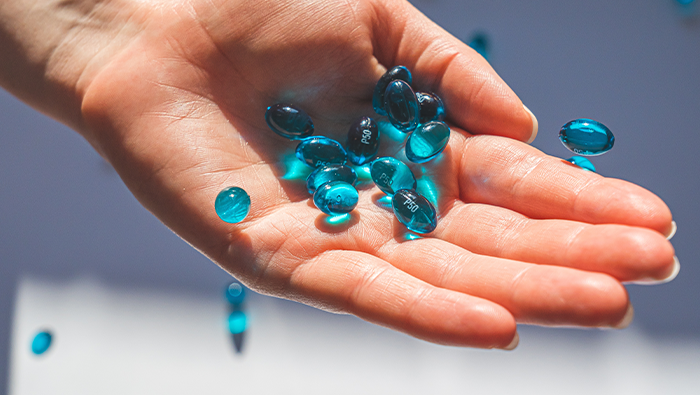
Learn more

Read an article

Learn more

Read an article

Learn more
What exactly is addiction? At what point does occasional drinking/drug use become regular? Why do people become addicted? Addiction is characterised by a periodic or permanent compulsion to perform a certain activity (e.g. gambling) or by providing the body with a psychoactive substance on a regular basis (e.g. nicotine).

Nowadays, the definition of addiction can be extended to practically all activities and substances during the performance or consumption of which the individual has lost control. For example, if I compulsively play sports or log on to social media sites, and the fact of not being able to participate in a work-out or have access to the Internet makes me frustrated, I may be addicted to this activity.
There is a plethora of models and theories explaining the phenomenon of substance use and addiction. At a general level, the addiction process can be explained in terms of a few simple principles. The primary issue and reason for using drugs or drinking alcohol is the desire to experience pleasure, the feeling of relaxation, to be ‘high’ and to share and experience these states with others who are also using drugs or drinking alcohol.
This process is also accompanied by the expectation of increased acceptance in the group and a desire for better communication - that is, improved social competence. Additionally, it may be caused by the need to develop creativity and the ability and fluency to express oneself in a wider group of people.
The mechanism of addiction, be it alcohol, drugs, gambling or other behavioural addictions (e.g. addiction to eating high-calorie food, shopping, compulsive work, addiction to sex and pornography) is the same. I do it (e.g. drink, gamble or overeat) because I am experiencing pleasure/relief. In another situation, e.g. when I feel a strong emotion, a conviction arises that I will not be able to soothe the emotion without this behaviour, so my addictive behaviour becomes intensified. In this way I get used to it and my body needs more
and more of the substance/relief. The key mechanism that is activated in addictive behaviour is the reward centre. The reward, of course, is feeling better, more desirable behaviour or better self-esteem. For example, when I go to a party, I habitually drink alcohol. As a result, my awkwardness disappears and I am open to engage in a conversation. This behaviour is a reward, which I will desire to achieve at next meetings.
Various factors are responsible for the development of addiction, including socio-cultural (in some circles or subcultures using alcohol is commonly accepted), environmental (e.g. in poor environments, where there are no other possibilities to achieve satisfaction) and personal factors. People who can easily become addicted have the following personality traits: hypersensitivity to unpleasant feelings, uncertainty in social situations and reduced impulse control. In addition, psychological factors such as low self-esteem, emotional problems and a sense of hopelessness always increase the risk of substance abuse. If someone’s strategies for coping with different emotional states are not sufficiently developed, such a person may perpetuate a pattern of using alcohol or other psychoactive drugs to relieve emotional tension. This is a very dangerous emotional regulation strategy. Unfortunately, people tend to become addicted to substances that have the power to influence and alter emotional states. They often think along the lines of ‘a little drink will help me to relax’. In addition, even if people with an alcohol problem are in a good mood, they still try to improve it by consuming the psychoactive intoxicant.
The problem of addiction affects very many people today and addiction is not only a problem for the addict, but also for those closest to him or her. Therefore, when discussing addiction, one must not overlook the issue of co-addiction. The treatment of such diseases as alcoholism or drug addiction is a very difficult and complex matter. It also requires the involvement and support of the family and close friends of the addicted person. When an addiction develops in one member of the family, it affects the entire family. Co-dependent people often experience anxiety, emotional tension, irritability and frustration. Co-dependent people also live with a constant sense of insecurity because they cannot predict when and under what circumstances they will encounter their partner’s addictive behaviour. In order to cope with the unpleasant feelings experienced by the loved ones of people with addiction, they themselves also use various coping strategies to help them adapt to this difficult situation.
Addiction treatment is an extremely complex process that requires understanding and patience, both from the addicted person and from those around him or her. The process is neither easy nor quick, but change and recovery are achievable.
Grzegorzewska I., Cierpiałkowska L., Uzależnienia behawioralne, Wyd. Naukowe PWN Warszawa 2018.
Beck A.T., Wright F.D., Newman C.F., Liese B.S., Cognitive Therapy of Substance Abuse, New York Guilford Press, 1993.
Marzena Trytek, MA – psychologist at the Jagiellonian University Student Centre for Support and Adaptation, cognitive and behavioural psychotherapist.
I like
people liked this article